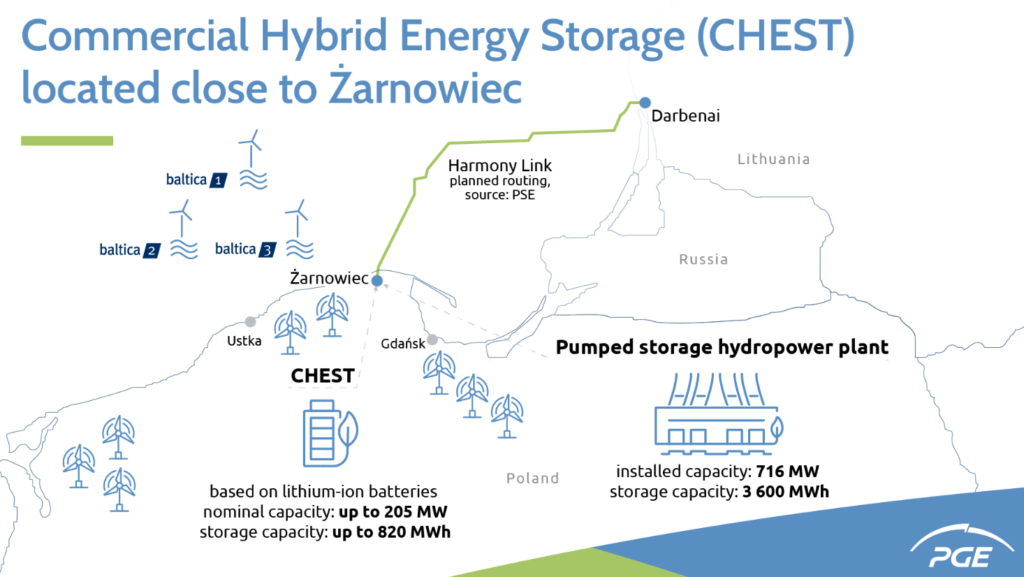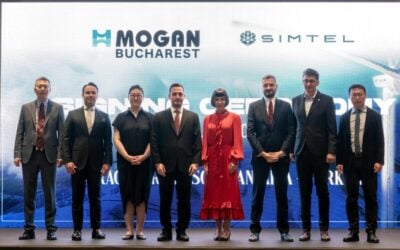
State-owned power company PGE Group has obtained regulatory approval to build a 200MW/820MWh battery energy storage system (BESS) in Poland.
The project, called CHEST (Commercial Hybrid Energy Storage), will target a capacity of no less than 200MW and a power output of 820MWh, making it one of the largest in Europe, PGE Group said. It will use lithium-ion batteries.
Enjoy 12 months of exclusive analysis
- Regular insight and analysis of the industry’s biggest developments
- In-depth interviews with the industry’s leading figures
- Annual digital subscription to the PV Tech Power journal
- Discounts on Solar Media’s portfolio of events, in-person and virtual
So far this year, the project has obtained a Decision on Environmental Conditions, the first promise of a concession for electricity storage, and the first grid connection permits, which the company said were crucial milestones in its development. PGE Group CEO Wojciech Dabrowski indicated the aim is to have the project completed by 2030.
He added: “The energy stores (storage) will ensure safe system integration of new renewable energy sources, will contribute to stabilisation of the power system and will improve the country’s energy security.”
The project will integrate with the existing 716MW/3600MWh pumped hydro energy storage (PHES) plant at Żarnowiec which together will smooth out intermittent generation of nearby wind farms (illustrated in PGE Group’s map above). PGE Group has permission to build 3.5GW of wind near the two sites.
The company, which is stock-quoted but majority-owned by the Polish state, also said the project would help the competitiveness of energy markets and the planned synchronisation of the Lithuanian, Latvian and Estonian power systems with the system of continental Europe.
This is being done through the Harmony Link project, an interconnector using a 300km-long cable between Poland and Lithuania. Although the project predates the Russian invasion of Ukraine, its aim is to allow the Baltic states to transition themselves away from the IPS/UPS system which is centrally controlled by Russia.
The launch of the BESS project may have been made possible by recent regulatory and legal changes enacted by the Polish Parliament around the definition of energy storage, a move covered by Energy-Storage.news at the time.
Another notable energy storage project in Poland is gigafactory company Northvolt’s energy storage system (ESS) assembly and production facility, which recently bagged a share of €1.8 billion in EU funding.






